A cost benefit analysis of unarmed responders to 911
When and Where
Speakers
Description
Join us for the last seminar in the Winter 2024 Seminar Series presented by the CrimSL Research Cluster for the Study of Race and Inequality!
This is a free event, however, registration is required.
Prior to the seminar, join us for a light lunch from noon to 12:30 pm in the Centre Lounge. Please indicate your lunch RSVP for catering purposes when you register.
Abstract
Since the 2020 police murder of George Floyd, research and community-based pilots increasingly explore the feasibility of unarmed civilian responders to 911. Research in this domain now suggests that somewhere between 15% and 50% of calls for service may be "re-tasked" to non-police emergency responders; that the deployment of non-police responders to some 911 calls for service can reduce crime; that public satisfaction with non-police responders in pilot programs are high; and that non-police responders may reduce instances of police use of force and citizen injury.
Building off this research, the present paper addresses whether and to what extent the implementation of unarmed civilian responders to 911 might induce cost savings for local governments and taxpayers. We consider both tangible costs (e.g., personnel costs, settlements from police misconduct cases, medical costs associated with police violence, etc.) and some intangible costs (e.g., dignitarian costs, quality of life costs, etc.).
Using Monte Carlo simulation, which allow us to account for the considerable variability and uncertainty in the current research literature surrounding how unarmed responders might operate, we estimate the costs/savings that the implementation of unarmed responders might have in over 50 large US cities. Our findings suggest that in almost all cities, a transition to unarmed responders is more likely than not to save local government and taxpayer costs, and that cost savings increase with the annual number of 911 calls received by the city, wage disparities between police and EMTs/paramedics, and the average number of police misconduct/use of force cases per year. Implications, limitations, and directions for future research are discussed.
About the speaker
Ayobami Laniyonu is an associate professor at the Centre for Criminology and Sociolegal Studies at the University of Toronto. Previously, he served as Senior Research Scientist at the Center for Policing Equity in New York City, where he worked with police departments across the United States on empirical analyses designed to identify and correct racial disparities in police contact and use of force.
His research interests include criminal justice reform, urban politics, and statistical methodologies, with a particular emphasis on spatial statistics. He is currently working on a series of projects that explore police use of force against the homeless and individuals with serious mental illness, the effect of gentrification on eviction rates in large urban areas, and the effect of police violence on political behavior.
In past research, Professor Laniyonu has explored the relationship between gentrification and discriminatory policing practices, the effect of Stop-and-Frisk policing on voter turnout and candidate choice in New York City, and the political significance of a related type of policing in the United Kingdom, so called “Stop and Search” policing. He is also interested in comparing the attitudes, experiences, and politics of Afro-descendant people across national contexts and has done so here.
About events from the CrimSL Research Cluster for the Study of Race and Inequality
This workshop is presented by the CrimSL Research Cluster for the Study of Race and Inequality.
Accessibility
Please note that CG 265 is on the second floor of the Canadiana Gallery building, with stair access only as there is no elevator. If you have any access needs or if there are any ways we can support your full participation in this session, please email crimsl.communications@utoronto.ca and we will be glad to work with you to make the appropriate arrangements.


